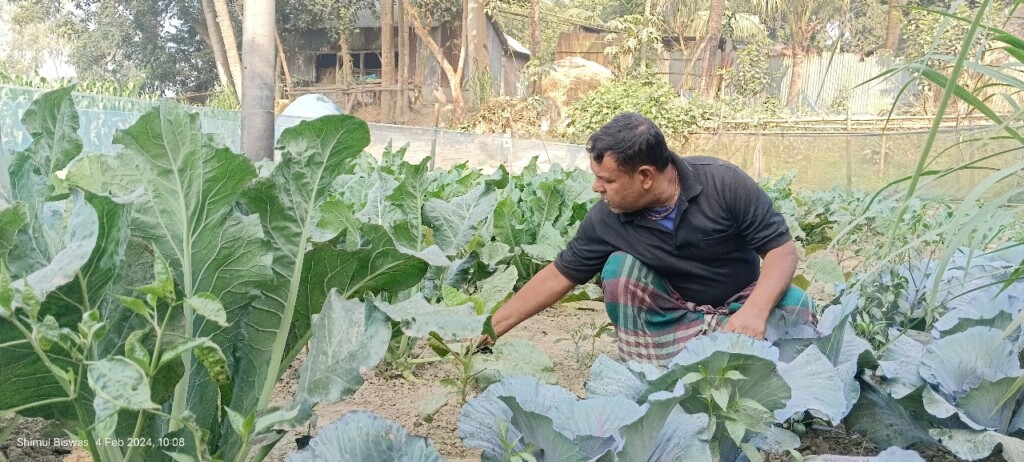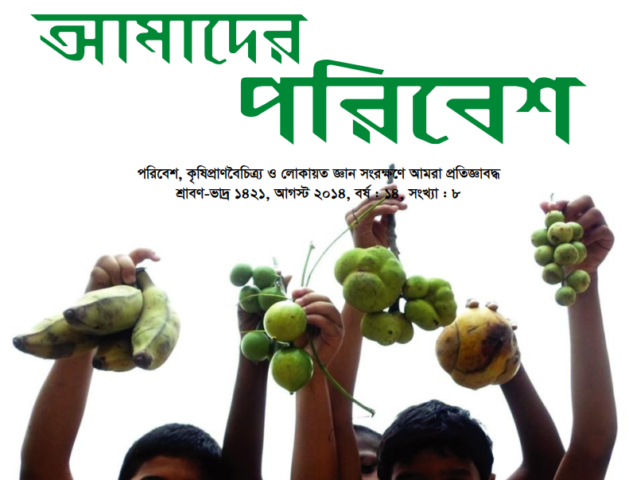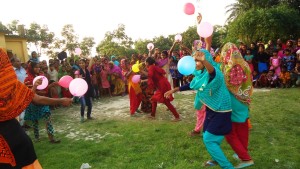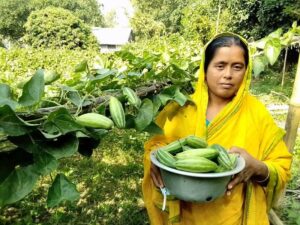By Shimul Kumar Biswas, from Manikgonj
Farmer Swapan Roy’s house at Kasta village, Singair upazila of Manikganj district, has become a renowned destination for local farmers who seek to learn about agroecology. Swapan Roy, a 48-year-old farmer, lives with his wife and son in a small, prosperous family. Agriculture is their sole source of income, and Swapan has skillfully managed his 30 decimal homestead and additional cultivable land to ensure year-round crop diversity, sustaining his family’s livelihood.
In 2018, Swapan became a regular member of the Kasta Barowari Krishak Krishani Sangathan, a farmers’ organization supported by BARCIK. Through this association, he gained valuable knowledge and skills on environmentally friendly, sustainable, and natural resource-based agricultural practices. The organization’s monthly meetings are now held in the courtyard of his house, which has become a focal point for agroecological learning.
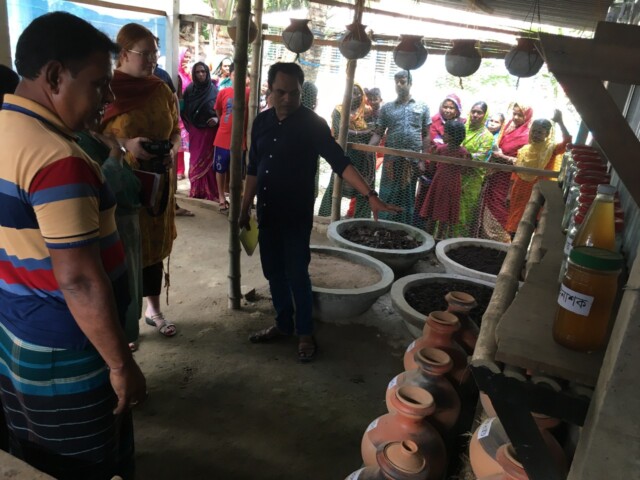
Swapan’s farming methods embody the core principles of agroecology. He does not depend on market-based inputs or corporate products. He instead develops a self-sufficient, eco-friendly farming system that integrates soil, water, plants, livestock, and fish. On a fallow plot adjacent to his house, he cultivates a diverse range of crops, including cauliflower, cabbage, radish, red cabbage, cucumber, sweet pumpkin, brinjal, fenugreek, spinach, grass, and corn. He has also built trellises for gourds, beans, and sweet potatoes, while a 20-decimal pond on his property is home to various indigenous fish species. His homestead is further enriched with fruit trees, forest plants, and medicinal herbs. Together with his wife, Swapan runs a small cow farm, creating a holistic and self-sustaining agricultural system.
BARCIK provided technical advice, materials, and support, including a vermicompost shed, a chicken hatchery, a non-cultivated plant conservation plot, a pigeon rearing shed, seed storage containers, and informational signboards with the objective to enhance Swapan’s agroecological practices,. These additions have transformed his house into an Agroecology Learning Center, attracting farmers from across the region.
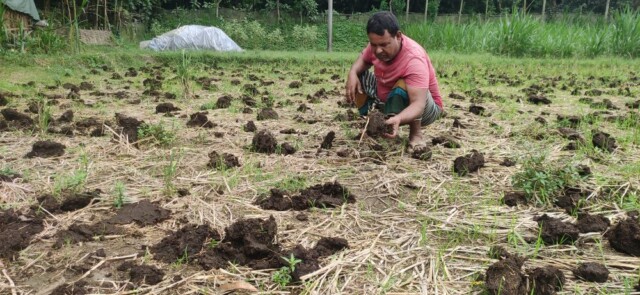
Swapan’s innovative practices and dedication have earned him widespread respect and recognition. His house is now a model for sustainable farming, offering practical training and education to hundreds of farmers. The center has become a preferred venue for agricultural training programs organized by the Agriculture Department and non-governmental organizations. Workshops on making bio-pesticides, earthworm compost, and hazel have already been conducted, inspiring 78 farmer families in his village to adopt similar practices.
Swapan’s journey reflects a significant shift in his approach to farming. Once dependent on market- inputs, he now prioritizes local, sustainable methods. He saves native seeds, processes cow dung for fertilizer, uses organic pesticides, and incorporates IPM techniques like sex pheromone traps. He has also diversified his fish farming practices, introducing local fish species to his pond.
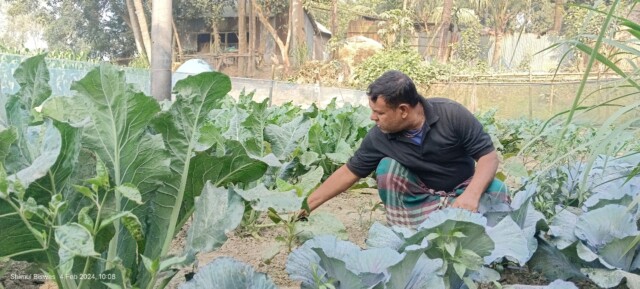
Through his efforts, Swapan has not only improved his own farming system but also empowered his community. Farmers in the area have gained valuable knowledge and skills, fostering trust and admiration for Swapan’s natural resource-based approach. His house stands as a testament to the transformative power of agroecology, inspiring others to embrace sustainable practices and build a resilient agricultural future.

